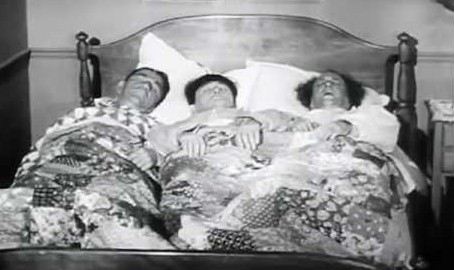A high number of the Airbnb lodgings in NYC have proven to be illegal, apartments kept from the market by large landlords who aim to make more money than the market would bear, which squeezes supply and forces rental prices upwards. Further, traditional hoteliers complain that they must adhere to regulations that the so-called Sharing Economy doesn’t heed. The same situation seems to be true in Paris.
Airbnb, of course, also has its good side economically. Apart from landlord listings, there are real homes and rooms to be had for vacation at much lower cost than a full-on hotel experience. Travelers who couldn’t afford the latter would have been forced to stay put, so this new option puts money back into the system, not just with the accommodations but also due to ancillary expenses.
In a Stratechery post which stretches back in scope to the Industrial Revolution and the exodus from farms, Ben Thompson argues that the only problem with this new arrangement is the subterfuge of the landlord behavior, which he believes should be out in the open, that ultimately the Sharing Economy, for whatever bad it may bring, is the greater good. Okay, that might be true in the aggregate, but if the so-called Peer Economy coupled with automation disappears many jobs in the hotel industry, and if we see similar shifts in the taxi and trucking and manufacturing sectors, we’d better have some sort of political solution in place to deal with what could make the changeover from farm to factory seem relatively placid by comparison. No one should want to halt progress, but we should be able to quickly adapt to the challenges it brings, including technological unemployment. An excerpt:
A not insignificant number of cities are equally concerned about “home,” but in their view Airbnb is destroying them by incentivizing landlords to remove residences from the rental market and instead offer them full-time on Airbnb. Paris, for example, which is Airbnb’s biggest market, has in recent weeks conducted raids on unauthorized Airbnb listings. As the Wall Street Journal reports::
Paris officials say there are some 30,000 tourist apartments available for rent in the city — about 2% of the total number of units — with as many as two-thirds operating illegally. Airbnb says that it is a fringe issue on its platform; just 17% of hosts in Paris say they rent out apartments other than their primary residences. It isn’t clear how many of those might be doing so without city authorizations.
Some hotel owners and other activists argue that full-time tourism apartments likely account for more than that in revenue terms, however. “You can’t call this a sharing economy anymore,” said Laurent Duc, president of the French Hotel Federation. “This is an underground shadow economy.”
It’s this last sentence that really gets at why the entire debate around the “sharing” economy is so stilted: at the risk of relying too heavily on my own anecdotal experience, it seems clear that at least a sizable portion of Airbnb’s business is made up of apartments and houses dedicated to Airbnb. In other words, no one staying in these professionally cleaned listings, complete with fresh sheets, towels, and complimentary toiletries, is joining their hosts for coffee or tacos or to simply hang out, no matter how delightful Airbnb’s founding myth may be. It is, as the president of the French Hotel Federation said, “an underground shadow economy.” Why, though, should it be underground?•

